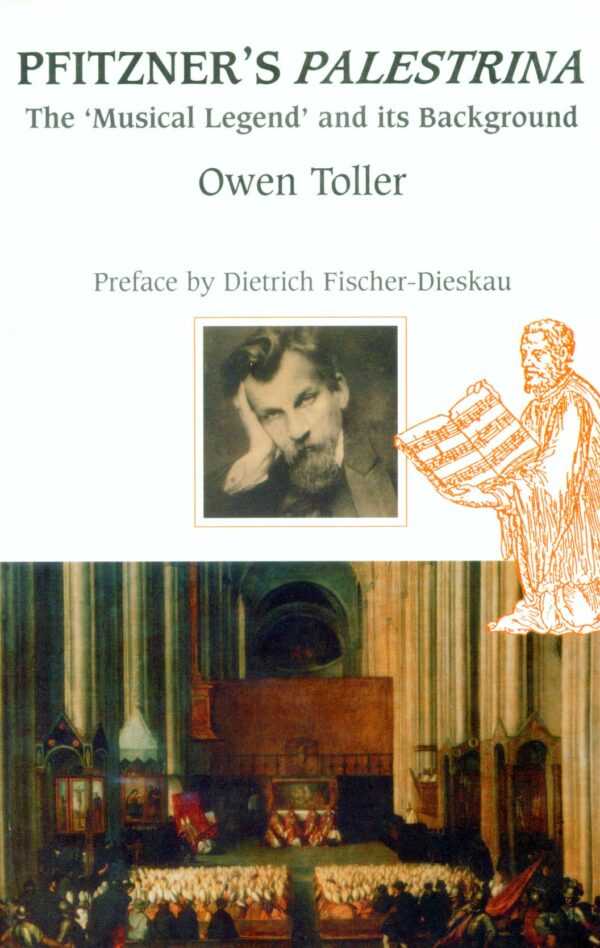Pfitzner’s Palestrina: The ‘Musical Legend’ and its Background
Preface by Dietrich Fischer-Dieskau
Extent: 310 pages
Composition: Demy octavo ~ Illustrations ~ Bibliography ~ Discography ~ List of Works ~ Index
Illustrations: 23 b/w; 89 music exx.
Hans Pfitzner’s ‘musical legend’ Palestrina is considered in the German-speaking countries to be one of the supreme masterpieces of music, and yet it is all but unknown elsewhere.
The opera, first performed in 1917, tells the story of the composer Palestrina, his struggle to compose following the death of his wife and in the face of anti-musical decrees from the Church, and his eventual composition of the Missa Papae Marcelli, which, it is said, was dictated to him by angels and reconciled the Church to contrapuntal music. The story, set against the historical background of the Council of Trent, is an allegory of the individual artist in society, as well as a statement of Pfitzner’s own beliefs about the musical climate of his time. The music is of profound nobility, constructed with enormous subtlety and skill.
In this book, the first to be written in English on Pfitzner’s masterpiece, Owen Toller discusses the music and the dramatic structure in detail, and presents a comprehensive introduction to the background material in the many diverse fields encompassed by the opera.
A substantial biographical chapter describes the circumstances in which Palestrina was written and first performed; it also provides a guide to the remainder of Pfitzner’s diverse and important output and to the hallmarks of his individual style.

Opera Now :
‘Nobody could go [to see Palestrina] better equipped than with Owen Toller’s monograph […]. Toller covers every aspect of the opera with detailed musical and dramatic analysis; his range of references is astonishing.’
—Robert Hartford, Opera Now
Fanfare Magazine :
‘brilliantly authoritative’
—Michael Jameson, Fanfare Magazine
Scenaria :
‘The analysis is penetrating and detailed enough and with a sufficient number of music examples to please and enlighten both musical scholar and general reader. […] Toller’s book is a milestone in musical history and it is mandatory reading for anyone wishing to gain a deeper understanding of 20th century opera.’
—Scenaria
MusicWeb International :
‘My interest [in the opera] has been sharpened recently by reading Owen Toller’s book […]
Clearly much thought and love have been channelled into the pages of this book. […]
there could hardly be a more through dissection of this loveable and lovely music. […]
A warm recommendation for this book to anyone having the slightest curiosity about the opera. […]
I recommend the volume and congratulate Mr Toller on his achievement and thank Toccata for their judgement in publishing this important work.’
—Rob Barnett, MusicWeb International
Classical Net :
‘This thoroughly researched and approachably written book’
—Classical Net